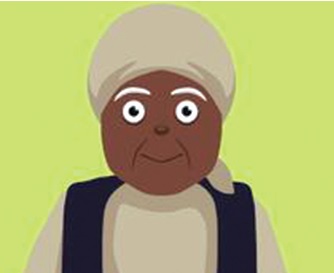We live in interesting times. Suddenly, living conditions in many parts of the world have become unbearably harsh and people are agitating for concrete steps to be taken in order to maintain their standard of living.
In Ghana, many worker unions have pushed (through demonstrations and strikes) for increases in salaries and allowances that compare with the cost of living or reflect the rate of inflation.
Like a big industrial machine, our country has set up a network of systems that ensure that citizens work to produce goods and services that make life comfortable and convenient for all of us.
Daily bread
Ghanaians work to earn an income. Majority are in the informal sector. They are the farmers, fishermen, artisans, traders, musicians, drivers, mechanics and others.
Those in the formal sector are the civil servants, teachers, nurses, doctors, lecturers, soldiers, policemen and many more.
It is expected that every worker who receives a wage or salary will be able to provide himself or herself with food, shelter, clothing and medication until retirement at the age of 60.
Of course, there is a category of men and women who stop work at a very young age because of illness or an accident, thus retiring early.
Preparation towards future
As soon as a citizen starts working, he must start saving towards the future. The roadside carpenter or mason and the school teacher should all know that their physical energy will start reducing as they age.
It is necessary, therefore, that all workers join a pension scheme, the most popular being the Social Security and National Insurance Trust (SSNIT).
Workers should also invest in government treasury bills or other secure bank products. Anything short of these will confer a life of poverty and deprivation in one’s old age.
Living on fixed income
In our communities, we have many people who have retired from work and are receiving monthly salaries or pension from SSNIT.
Others may have different schemes because of where they have worked. Such payments are fixed and generally remain unchanged for a whole year.
In the case of SSNIT pensioners, it is customary for them to receive about 10 per cent increment at the beginning of every year and they have to live on these paltry sums for another 12 months.
Sadly, most of those who worked in the informal sector did not join any pension scheme at all.
As a result, our farmers, fishermen, traders, craftsmen, musicians and others have to take care of themselves in old age whether the economic situation is very dire or not.
Reality
Even if we focus on this year, 2022 alone, we observe that the prices of food, transportation and LPG have been increased several times.
The same scenario applies to medication and other non-luxury items. How do we expect the pensioner and all other senior citizens to cope with rising prices?
Is it not public knowledge that a huge number of SSNIT pensioners earn about GH¢400 a month?
The graduates and senior officers usually receive about GH¢1,500 monthly. Indeed, the situation is dire for those in the informal sector.
Many have no incomes at all and have to rely on the extended family system for support.
In my view, many elderly women and men in Ghana are dying slowly because living has become impossible.
It is unacceptable to watch our senior citizens, who have worked for this country, who are prone to life-threatening diseases, struggle to buy medication to support themselves.
Way forward
Senior citizens in all communities must form clubs. The elderly should use these clubs or societies to solicit food, medication and clothing from the affluent in society and distribute them among the most vulnerable in the groups.
These clubs should be the meeting places for entertainment and information sharing.
Finally, central government should amend the laws on pensions so that monthly pensions can be adjusted in very difficult times.
In addition, there should be a provision in the national health insurance law that will permit pensioners to receive free medication for all diseases.
The writer is chairman of Onua Pa Foundation, an NGO promoting better care for the elderly. E-mail: onuapa70@gmail.com

